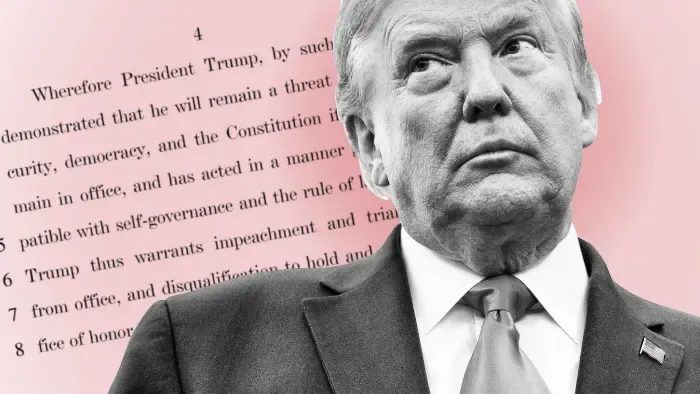
As written, I don't support Trump's second impeachment. There are ways it could have been written and cases that could have been made that I would have supported.
The argument for it, is essentially that "inciting an insurrection" through statements is a permissible restriction on speech in the way that "shouting fire in a movie theater" is. That Trump enflamed the passions of his supporters knowing that inflaming passions could lead a crowd to violence.
The words of incitement were essentially that the election was "stolen", that Trump himself won in a "landslide" and not just him but democracy itself was cheated.
But it seems to me there's some obvious questions here. One is whether the election really was stolen (it wasn't), one is whether Trump believed it was stolen (he may or may not have... hell, given it's Trump he may have believed so Monday and Wednesday but not Tuesday and Thursday), one is whether he thought his statements would lead to violence or insurrection (if he didn't, he should have).
I mean... I'm closer to a free speech absolutist than most. I get uncomfortable on the whole "enflaming the passions of a crowd" thing. Like... if a speaker at a BLM event says cop brutality lead by systemic racism often goes unaddressed (or something less true like all cops are out there trying to shoot minorities or something), and the crowd smashes some windows and sets some fires or loots some stuff... is the speaker at fault?
No... that's the wrong question. How much is a speaker that inflames a crowd's passions at fault? What level of responsibility do they have, comparatively speaking? What precedent do we really want to set placing limits on political speech that inflames passions but may in fact be an expression of truly held beliefs?
It's an area that I definitely think we need to tread lightly on.
Some level of risk that any emotionally-based political speech could inflame some to violence, even outside of crowds, is always present. I mean, the last attempted act of violence against Congress was the congressional baseball shooter... and I don't blame Bernie for his actions even if the shooter claimed inspiration from him. Do we really want politicians to self-censor in order to minimize risk of political violence?
Is it just when they're addressing crowds? If Trump was physically addressing a crowd separate from the crowd that entered the capital, does it still count if they had access to the internet? If that's the case, does speech broadcast on TV or internet that's accessible by crowds and individuals alike 24/7 mean that the crowd limitation has been made irrelevant by technology?
Trump does deserve plenty of shade for things he's done and said, and committed several offenses I think should have risen to the level of impeachment. He deserves blame for his conduct at the end of his Presidency, from unsuccessfully trying to overturn the results to what he said around the time his supporters stormed the capital. The election wasn't stolen. Whether or not Trump believed it was, he should have known better. Whether or not Trump thought his words might have inspired violence, he should have. He acted poorly.
But I'm pretty sure if I had been in the house, I would have voted against this impeachment and then immediately introduced replacement articles of impeachment with better charges.
